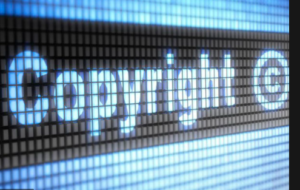When Copyright Law Prohibits Image Use
By James Pruitt, Senior Staff Writer
Commonly, a Veteran Business Owner might choose to incorporate an image onto their materials. Visual images capture more vivid responses on social media, more so than verbal content. However, remember that legal responsibilities attach when using other peoples’ work. Generally, the creator owns the image itself.
“Trademarks” actually differ from “copyrights.” The owner of a “trademark” more likely registers at a government office. “Copyrights” can be registered but are hazier and more complicated. “Copyrights” can acquire relevance through repeated use and association with a certain brand. No official maneuvers in any public office need precede the attachment of a “copyright.” The creator of an image has rights to that image regardless of any bureaucratic steps they may take.
The “Berne Convention Treaty” determines certain basic permissible uses for copyright and applies in various countries. Among these rights is the freedom to “reproduce the work,” “make derivatives of the work,” “display the work publicly,” and “distribute the work in public.” Note the general bias against commercial use of copyrighted material.
The concept of “fair use”
In some cases, an image can be used without the permission of the creator. Generally, these uses are not-for-profit and for the public benefit. The law has codified fair use as encompassing uses that are “for commercial, non-profit, or educational use,” “highly creative, or more fact-based,” as well as “how much of the work is reproduced,” and “how the use affects the potential market for the original work.”
However, this exception rarely applies in cases of advertisements or marketing.
What About Stock Images?
Website designers can find “stock photos” and images throughout the internet and can expect different levels of permission for use of those images.
Examples may include 67% Collection, istocphoto.com, Pexels, Stocksnap, Unsplash, Pixabay, and Freestock. The list of these sites is endless, and many stock images have become all too familiar to the public from excessive use.
When does copyright law interfere with the legality of any public use of stock images by a private company? Users should read the fine print on a stock image page, especially before use on a for-profit website. Many of these sites request licensing fees in consideration for use of these images. Even after payment, the provider and creator of the image may forbid certain uses. Remember that actors, artists, and photographers put their work into these images, and each has their own interest in how the work is used. Each might have its own “terms and conditions” for wider use.
“Creative Commons” Licenses
“Creative Commons” licenses address many of these concerns. These licenses restrict the unincumbered use of copyrighted material. For example, some artists may choose to restrict their work for noncommercial rather than commercial use. Others, for example, might choose to prohibit use for a certain political cause. Perhaps a model doesn’t want their image doctored in Photoshop, or a photographer doesn’t want changes to the lighting or background.
“Creative Commons” licenses exist in law to balance the interests of creators with those of users, especially in cases where the creators hope for widespread, but not unrestricted, use of their work.
How to Handle Copyright Concerns with Image Use
Unencumbered commercial use of online images is never a good idea. Stock photo sites provide one avenue for business owners in need of graphic imagery. However, these images generally have caveats, and business owners should carefully scan any use restrictions.
Frankly, the best option would be for business owners to produce their own imagery. In addition to evading legal complications, an independently produced image speaks to the capacities of the company.
All internet users should assume online images are never absolute public domain. Careless use of possibly copyrighted pictures can not only land Veteran Business Owners in legal hot water but could damage the reputation and legitimacy of their business as well.
VAMBOA, the Veterans and Military Business Owners Association hope that this article has not only been valuable but provided some unique perspective. We work hard to bring you important, positive, helpful, and timely information and are the “go-to” online venue for Veteran and Military Business Owners. VAMBOA is a non-profit trade association. We do not charge members any dues or fees and members can also use our seal on their collateral and website. If you are not yet a member, you can register here: https://vamboa.org/member-registration/
We also invite you to check us out on social media too.
Facebook: https://www.facebook.com/vamboa
Twitter: https://twitter.com/VAMBOA
Do not forget that VAMBOA members receive significant discounts on technology needs. Check them out here: https://vamboa.org/dell-technologies/








